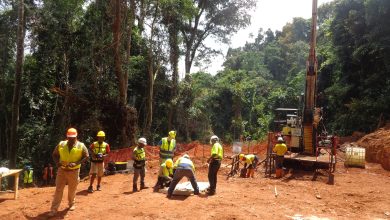
Community participation & involvement facilitation for mining-specific renewable power projects
Advisory Providers Key to Meeting Community Expectations
Present economic conditions in local communities require project developers to adopt a different approach to the planning and implementation of the community participation and involvement component of their Environment, Social and Governance (ESG) obligations. Seeking the expertise of an experienced advisory company can enable them to tick all boxes and achieve compliance – meeting the expectations of local communities in the areas of local employment, local procurement, supplier development, skills development and transfer and socio-economic development
Globally, in the past year, there has been a launch of several greenfield projects in mining, renewable energy, and petrochemicals and gas, just to cite a few, following a recession which began prior to the outbreak of the COVID-19 pandemic. Notwithstanding the effect of the Ukraine War, this trend is set to continue in 2022 and beyond. Developers of the projects are upbeat as they are embarking on the projects.
One of the elements of their respective business imperatives, on which the success of these projects hinges, is proper planning and implementation of community participation and involvement. And given the intricacies that this task involves, Janine Espin, Managing Director at Economic Development Solutions (EDS), recommends that project developers should engage the know-how of an experienced advisory company in the context of mining and renewable energy projects. This sage advice is based on over ten years of experience gathered from the provision of community participation and engagement advisory services for the niche of renewable energy projects. The company specialises in facilitating economic development inclusion and compliance management for organisations in mining, energy, construction and other industries in South Africa.
Non-biased party, objective outlook
Typically, as an outsider, an independent consultant can approach community participation and involvement with an objective outlook. “As a non-biased party, an advisory company looks at issues from both the client and the community’s perspectives when facilitating stakeholder engagements or assisting with strategic decision-making processes. This allows for a broader and sustainable impact approach, especially related to ESG. Most importantly, the expectations of local communities in the areas of local content, upskilling and enterprise development are managed,” explains Espin, underscoring the relevance of advisory services in managing expectations of communities in the current atmosphere by ensuring transparency.
High expectations
Undoubtedly, the critical role of independent advisory companies in projects has never been more relevant. This is considering the current volatile economic atmosphere in local communities in particular.
Usually, with the launch of projects, there are high expectations in local communities, especially in view of the scarcity of economic activities, which is resulting in rising unemployment and loss of livelihoods. And for project developers, in this environment, achieving the balance between meeting their project objectives and obligations of community participation and involvement initiatives can be an enormous task.
Typically, concerning mining projects, challenges with managing community expectations are encountered in four scenarios (more or less the same would apply in other industries). These are the infrastructure development, payments of dividends and seats on boards with decision-making powers, and the employment of people from other areas.
On infrastructure development, Espin illustrates: “There are cases where the community expects mines to build houses for the entire community, as well as decent roads, which is the responsibility of municipalities.” In reality, mines can only build houses for their workers and private roads used for mining operations.
In some cases, the community may demand active decision-making powers with seats on boards. This has been observed in some renewable projects in the Northern Cape. Furthermore, communities may even expect to receive a direct financial reward in the form of dividends payable to households.
A common matter is when there is a lack of skills and competency like plumbers, welders and other artisan skills relevant to the project in the local community. This may compel developers to bring skilled labour with specialised skill competencies onto the project site. This may lead to the community accusing contractors of deliberately ignoring the plight of the locals and not wanting to employ local community members.
Implementing community initiatives in a renewable power plant project can be complicated. This is because the local communities may expect outcomes that are similar to a previous mining project. They could be oblivious that different compliance requirements apply.
Transparency
To handle expectations, there should be transparency from the onset so that all partners are on the same page regarding the project objectives and expected outcomes.“The community has to be engaged and consultation with contractors should be implemented to identify scopes of work for the local suppliers. This should be communicated to the local community upfront, prior to the commencement of the project construction,” Espin stresses, adding that improved awareness is key.
She indicates that one of the areas where there must be enhanced awareness is that projects are implemented in accordance with legislative or Government driven guidelines. “A huge publicity campaign is needed through advertising as communities are becoming savvier and expect to have larger stakes in projects, but without understanding the implications thereof.”
Guidelines
One of the critical areas where there should be more focus is on compliance management for projects.
For mining projects, community participation and involvement fall under the ambit of Social and Labour Plans (SLPs). This is one of the conditions of a mining licence. It has broad compliance requirements spanning vast areas. Where applicable, as part of the fulfilment of their obligations, mining companies may collaborate with municipalities in initiatives like building clinics.
Regarding independent power projects, there are no predetermined guidelines and regulations, however projects which fall within Governments‘ Renewable Energy Independent Power Producers Procurement Programme (REIPPPP), must comply with the Broad-Based Black Economic Empowerment Codes, and Economic Development compliance and more specifically local content both in the construction phase and over the lifespan of the project, supplier development, as well as focus on youth, women and those living with disabilities. The regulator of both of these regulations is the Department of Mineral Resources and Energy (DMRE).
Value of experienced service providers
All told, the aforementioned challenges require a unique approach to community participation and involvement, a forte which only a vastly experienced/accomplished advisory company like EDS can handle adeptly.
In a nutshell, experienced advisory companies add value to projects in the following areas:
- Community engagement and expectation management
- Stakeholder Engagements
- Baseline assessments
- Integration of compliance management into work ethos/infusing compliance management into work ethos
- Monitoring and evaluation of Return on Investment (RoI)
- Reporting on adherence to commitments
- Training and development
- Industry Compliance Management
- Assisting with risk management, especially related to community unrest
In due course, partners can realise desired outcomes from a project – Return On Investment for the developers and economic benefits for the local communities. Specifically, developers can attain enhanced community wellbeing, through engagement, participation, local content, upskilling and enterprise development – meeting their business imperatives.
As a parting shot, Espin assures industries that EDS is in good stead to handle demanding community participation and involvement issues in RE power plant projects in communities. “We play a facilitation role, significantly simplifying compliance. We enjoy working with both rural communities and corporate top structures. In addition, we bring years of experience on board as Economic Development facilitators and strategists.”
Sidebar
Creating sustainable community initiatives in mining communities
It has been observed that in many communities, participation and involvement initiatives in a mine’s life stall once a mining project reaches the end of life. And so, Espin suggests that a community initiative should be planned with a long-term view in mind. In this way, it can sustain itself in line with Sustainability Development Goals (SDGs), which underline a project’s monitoring and evaluation and beneficiation. This is only attainable through enduring partnerships with communities. Ultimately, the benefits they provide can extend beyond the power plant.






